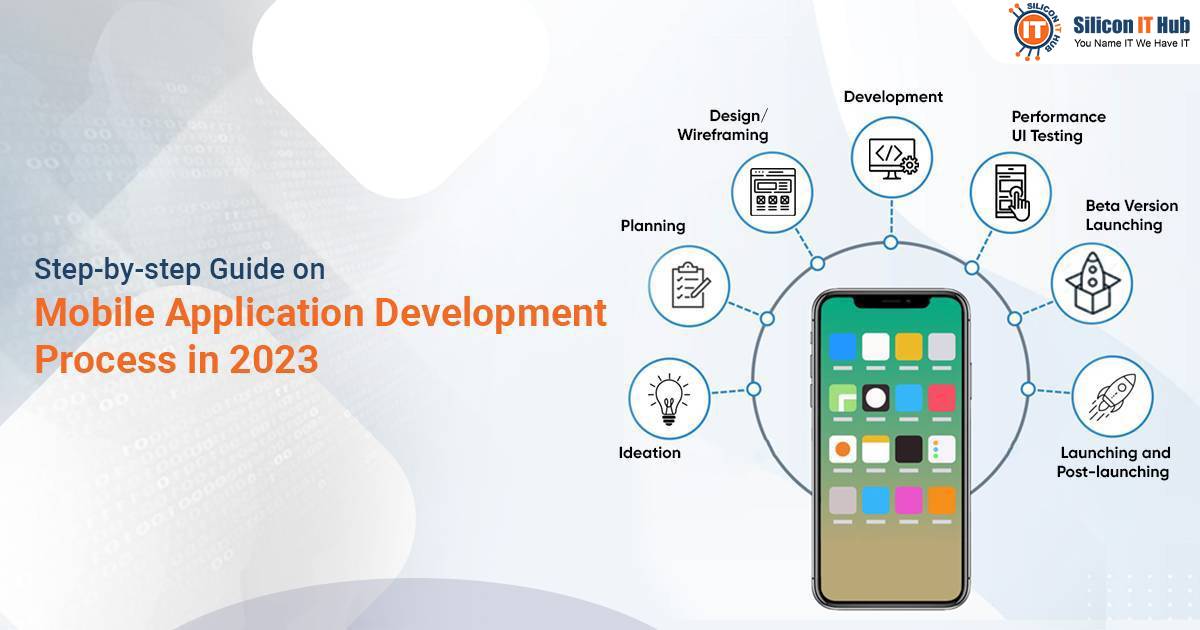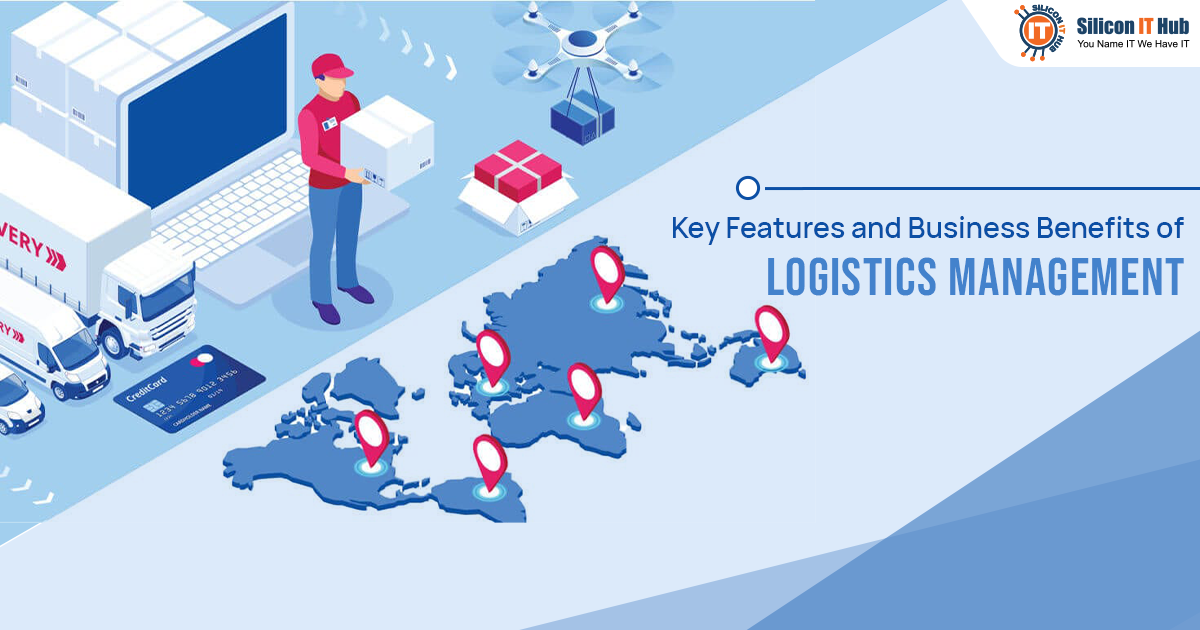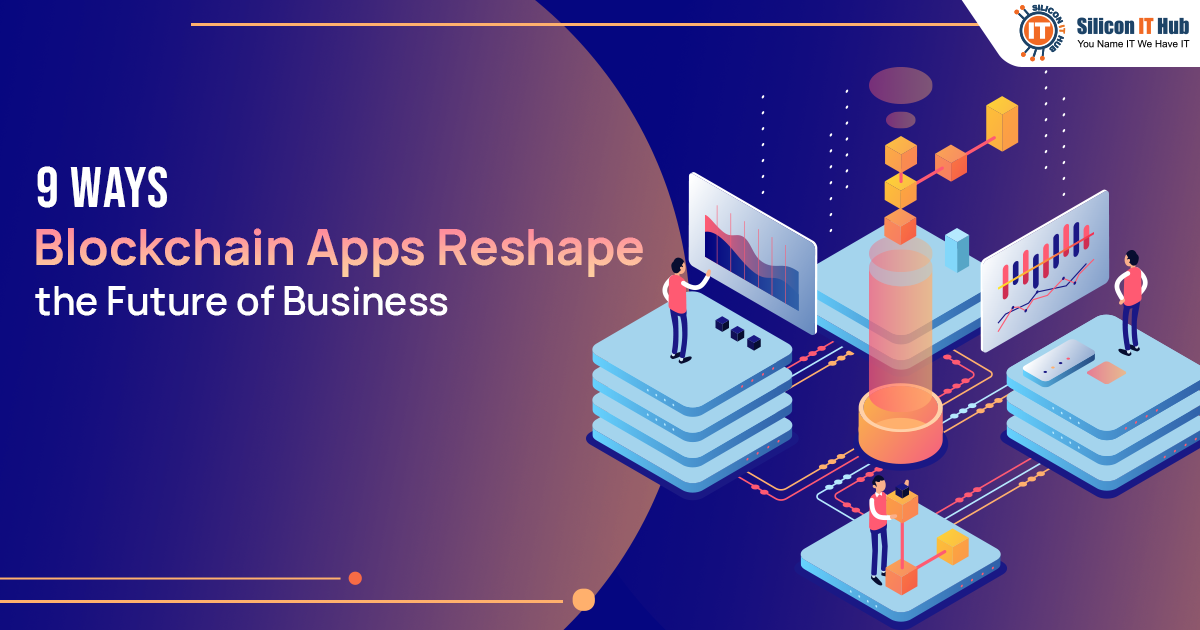

Step-by-step Guide on Mobile Application Development Process in 2024

Introduction
App stores have millions of apps to download, and this number keeps on increasing every day. As we live in a mobile-driven world, today, we have more mobile devices in the world than people. Companies, irrespective of their sizes and business models, tend to come up with feature-rich mobile apps to leverage the growing popularity of apps. This trend results in the growth of mobile application development Process worldwide.
In this article, we will go through the step-by-step process of developing customized apps from the perspective of a mobile app development company . Let’s start from scratch and dig deep into the importance of tailored mobile apps.
Importance of Mobile Applications
In the dynamic landscape of mobile technology, the mobile application development process is a pivotal strategy for companies seeking to harness the myriad benefits offered by mobile apps. Whether opting for a native app tailored to a specific platform or a cross-platform solution catering to diverse audiences, businesses can tap into vast opportunities. Mobile app development services empower companies to connect with a broad target audience, offering a personalized experience through a bespoke application.
A mobile application development process is useful in sharing information in real time across different departments and among multiple stakeholders at once. Your employees can perform various tasks using the enterprise-grade app on the move. What’s more, it remains a highly effective communication channel between companies and customers.
As a robust online representative, a dedicated mobile app can give your company an advantage in branding and marketing. You can save big on marketing when reaching a huge audience effectively through an app route. It is also possible to send instant notifications on alerts or company updates and offers through a mobile app.
In tailoring your approach to address a specific target audience, the choice between a custom Android app or an iOS app becomes crucial. For instance, with Android dominating with over 72 percent market share in regions like Asia and Africa, an Android app proves strategic. Conversely, for businesses targeting North America and Europe, opting for an iOS app aligns with the preferences of these regions. Thus, the mobile application development process emerges as a versatile tool, allowing companies to strategically position themselves and capitalize on the diverse opportunities presented by the global mobile landscape.

Modern enterprises can streamline their workflows and enhance their internal and external communication using the mobile app. Automation and digital transformation are two pillars for growth in a highly competitive scenario. Let’s look at the top benefits of custom mobile apps for companies.
Key Business Benefits of Custom Mobile Applications
Custom mobile apps can generate revenue in multiple ways including advertising, in-app purchases, etc. As per the Statista report, the mobile app revenue is expected to reach a market volume of USD 613.4 billion in the year 2025 at an annual growth rate of 6.91% between 2022-2027.

Apart from generating revenue through several ways, a customised mobile application development process offers many benefits to different companies across various industry sectors.
Increased Customer Engagement
Custom mobile application development process are aimed at strengthening relationships with customers by offering them personalized services. Custom mobile apps can offer users better access to products and easier ways to interact with the business. In a way, you can increase customer engagement and get their loyalty.
Improved Employee Experience
An enterprise-level app is capable of handling several tasks while offering your employees seamless access to customer data and other work-related information in real time. What’s more, your employees can focus more on their creativity and enhance their skills without worrying about manual and repetitive tasks as an app can handle them.
More Automation and Efficiency
As mentioned above, a custom mobile application can handle repetitive and mundane tasks thereby bringing automation to the mobile application development process. Also, mobile apps are designed to work on a 24×7 basis, and employees can access the corporate data on the move as and when necessary. It can increase their efficiency significantly.
Reduced Operational Costs
A feature-rich mobile app can save valuable time for enterprises by bringing automation and simplifying complexities. In a way, these tailored business apps can reduce operational costs over the period. A mobile app may have advanced features based on emerging technologies and in a way, it can reduce the additional costs for companies and streamline processes.
A leading mobile app development company can mention other benefits of mobile apps also. If these benefits attract you then it’s time to understand the mobile application development process in detail. Let’s start from scratch.
6 Steps of Mobile App Development Process
Mobile app development service providers usually follow the 6 step strategy for developing a user-friendly and feature-rich app. Let’s dig deep into these steps.
1. Ideation and market research

It all starts with a brilliant idea or thinking of a solution to a common problem faced by many customers. In this phase, you need to have all aspects clear about what you want to offer to your target audience. Your ideation can be dependent on multiple factors including the geographic location of the target audience, unique or common solutions to prevalent problems, and even the features of the competitor’s app. You can consult a mobile app development company to have a visual representation of your app concept.
2. Planning and documentation

After defining the idea clearly, the next step of mobile app development is to identify and jot down different elements in the plan. You need to include all the necessary components including features, functionality, objectives, and monetization options for your app in a well-defined roadmap. Many entrepreneurs consult reputed mobile app development service providers in this stage for making an accurate plan. You can think of technical specifications and app design with the help of a mobile app development company.
3. Designing the User Interface

UI/UX design can play a vital role in ensuring the success of a mobile application development process. Therefore, it needs to be intuitive, engaging, and capable of offering a seamless experience. The design stage includes the following aspects:
Developing rules (workflow) in line with the app’s information architecture
Business analysts make digital sketches known as wireframes based on the workflow
A style guide is created to meet the branding-related requirements
Designers make mockups and prototypes of the app based on the style guide
Development
The next step in the process is the most important one. It is known as the development stage and it consists of two parts- frontend and backend. The frontend part is involved in making an interface of the app that end users will use the most. Three major approaches of frontend development are native (platform-specific), hybrid (web and mobile), and cross-platform (both Android and iOS).
The backend part involves the creation of databases and server-side objects to ensure a seamless app performance. The backend part is crucial in the app development lifecycle because it can determine the app’s scalability in the future.
4. Performance-UI Testing

Mobile app testing or UI testing is another crucial stage that needs careful execution. When you hire a team of mobile app developers, you will have a QA executive. This stage consists of five different methods- functionality, performance, security, platform/device, and extended review. The last method of extend review is important as it gives developers and app owners a chance to take initial feedback from actual users. It is also known as a beta version of the application.
5. Beta Version Launching

As mentioned above, the beta version of an app is shared by a specific group of target users before deployment. The core objective behind launching a beta version or a test version is to get as much feedback or suggestion as possible before launching the app. Developers can get a chance to improve the app’s performance and remove bugs based on feedback and early access to the beta version of the app.
6. Launching and Post-launching

This is the last phase of the app development process. You can go through different distribution models based on the platform you have selected for deploying the app. The mobile application development process deployment strategy is based on Apple App Store or Google’s Play Store for publishing. Both stores have several forms and fixed charges with certain rules to deploy the app.
The post-launching stage includes technical support and continuous performance monitoring for your application. Both these are value-added services and enable you to ensure the app’s seamless performance. Some major KPIs for performance monitoring are:
App downloads
Average visit time
Active users
Retention
Conversions
Ratings & Reviews
You can hire mobile app developers to keep track of crashes, customer requests, and bugs to make sure your app remains user-friendly.
Major Aspects to Consider before Initiating App Development
After going through the key mobile app development process, you may think of building a tailored app for your company. However, before making a roadmap for your app initiative and setting some budget aside, it is better to check the following key points.
Determine the strategic relevance of your app
This is one of the most important considerations for your company. You need to determine whether your business really needs a mobile application development process. It may possible that your enterprise should focus on other more significant IT projects before developing an app. Here, it is fair to mention that the mobile app development process requires a large sum, and your company needs to remain prepared for additional costs also. Therefore, you need to set the priority with other major pending tasks.
Decide the type- enterprise or consumer-focused app
This is another important question that needs a proper answer. As per your business model, target audience, competitor apps, and industry or market trends, you need to think about whether you should come up with an internal app for your employees or a customer-facing app. For example, if you own a B2B business with remote plants and warehouses, it is better to start with an internal app that can keep remote employees and stakeholders on the same page. Whereas, retail and finance sectors need consumer-facing apps.
Select the right outsourcing partner
Finally, you need to choose the most suitable outsourcing partner for developing your application. These days, many vendors offer mobile application development process in different countries, but it is better to consider a few checkpoints to select the right app developer for your project. These points are overall experience, engagement models, domain expertise, state-of-the-art infrastructure, and teams of dedicated developers. You can also ask for referrals and check the portfolios online to get a better idea about various app development companies.
Hire Our Mobile App Developers
Hire app developers with high-end tech skills in Native and Cross-platform mobile development technologies to acquire top-notch quality output. Smartly breakthrough the stiff competition of the market with value-led and user-focused mobile application development process that give your business and brand a powerful boost.
Leverage mobile app development solutions crafted by domain experts well-versed in the latest trends and techniques of the market. Our certified app programmers have worked on a wide range of scalable and secured mobile application development process for our niched and global clientele.
Concluding Lines
The mobile app development domain evolves in line with advancing technology. From making a roadmap to selecting the right partner, from product discovery to app release, everything in between makes the entire mobile application development process long and ongoing. Hope this definitive guide to mobile app development and some necessary aspects that you should keep in mind before initiating this process, will help you make the right decision for your enterprise.
It is fair to mention that your app needs regular attention to improve its features and functionality after release. It can keep your app up-to-date and in line with market trends. You can hire mobile app developers from a reputed mobile app development company to get assistance with your app project requirements and development process.
Silicon IT Hub is your robust and reliable mobile app development services provider. Our in-house team of developers can offer end-to-end services ranging from conceptualization to release of the app and from development to maintenance of your app. Do you want to know more about our enterprise software and other development services? Simply send us your query at info@siliconithub.com and one of our expert professionals will get back to you soon!
FAQs
Some of Your Common Questions Mobile App Development Process in 2023
Latest Blog

Key Features and Benefits of Logistics Management Software
In this post, we will see the features, benefits, and trends in logistics management software. Before moving ahead, let’s understand logistics management and its importance. ...

NFT and Blockchain App Development Services- Aspects You Need to Know
In this post, we will cover the key benefits and disadvantages of NFTs with the highlight of future trends. Let’s understand the concept of NFTs and its importance in blockchain app development servic...

Top Business Benefits of Blockchain Application Development Services
In this post, we will dig deep into the benefits of blockchain app development for modern businesses....




